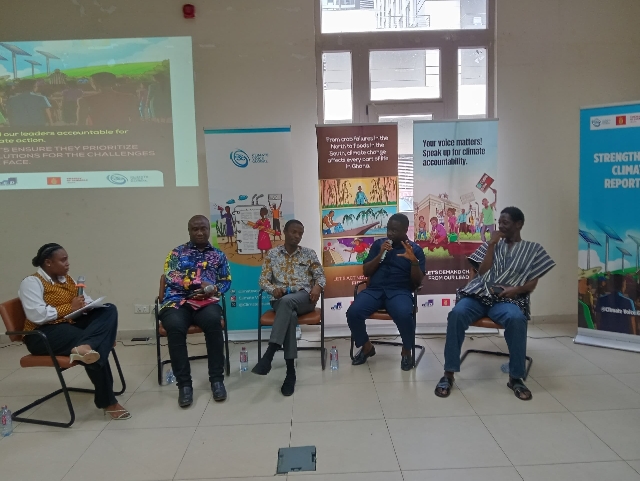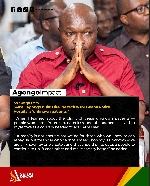Climate change poses threats to African democracies- University of Ghana Prof.
 A panel discusssion at the workshop in Accra
A panel discusssion at the workshop in Accra
A professor at the University of Ghana Business School, Prof. J.K. Mensah, has highlighted climate change as a significant factor that can destabilize democracies in Africa.
Speaking at a training workshop in Accra, he warned that the impacts of climate change, if left unaddressed, could threaten the stability and prosperity of African nations.
The workshop, organized with support from the Centre for Democratic Development (CDD-Ghana) and the Danish Embassy, aimed to enhance the capacity of journalists, climate reporters, and media professionals to cover issues at the intersection of climate change and democracy.
Held at the Accra Metropolitan Assembly (AMA) office, the event was attended by key figures, including the AMA Metropolitan Chief Executive, Elizabeth Sackey.
Participants discussed the political and democratic dimensions of climate change, exploring ways to empower citizens to demand action on issues such as flooding, droughts, extreme heat, and rising sea levels.
During his presentation, Prof. Mensah explained how climate change could fuel political instability.
“Climate change can create political tensions and strain the government’s credibility if its impacts are not mitigated.
This could lead to civil unrest as citizens grow dissatisfied with inadequate responses to environmental challenges,” he said.
He further emphasized the socio-economic implications of climate change, noting that rising food insecurity could make vulnerable youth susceptible to recruitment by extremist groups offering financial incentives.
“Lack of food and livelihood opportunities could push young people toward joining extremist groups as a means of survival,” he warned.
Prof. Mensah also addressed the issue of climate-induced migration, which often puts immense pressure on urban areas and their social amenities.
He called for proactive measures to mitigate these challenges and ensure that governments prioritize both climate adaptation and democratic resilience.
The workshop underscored the importance of raising awareness about the links between climate change and governance, urging African leaders to adopt robust strategies to address environmental challenges while maintaining democratic stability.
Source: Classfmonline.com/Cecil Mensah
Trending News

Alhaji Agongo builds lifeline facility for Ghana Police Hospital’s ‘unknown patients’
13:42
IGP Special Operations Team arrests suspect in Kpalsi over suspected Indian Hemp
07:48
Police arrest 2 suspects for unlawful possession of ammunitions
10:06
Kumawu MP shares Christmas with aged, widows in Constituency
07:39
PRINPAG President loses father
08:26
Ghana launches one-day expedited passport service
15:25
NDC Regional Chairman extends annual support to vulnerable groups in Assin Foso
02:59
Goldbod to put rest alleged claim of losses on Monday, Jan.5
15:08
Margins Group reaffirms commitment to innovation and service delivery as 2026 begins
02:35
Ashanti Regional Minister announces rehabilitation of 200 drug addicts after Tinker Island clean-up
14:58



